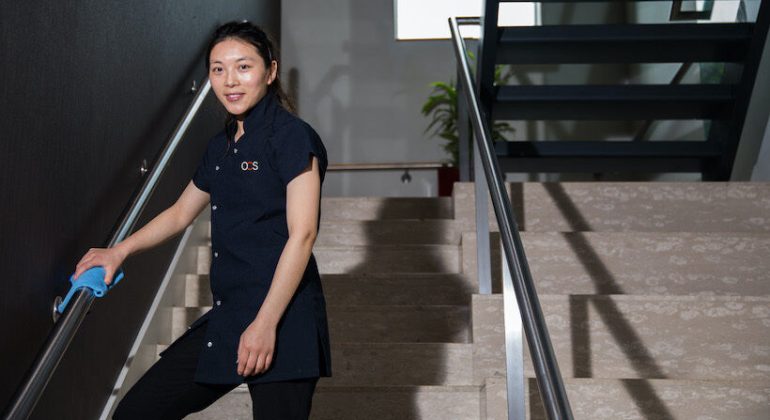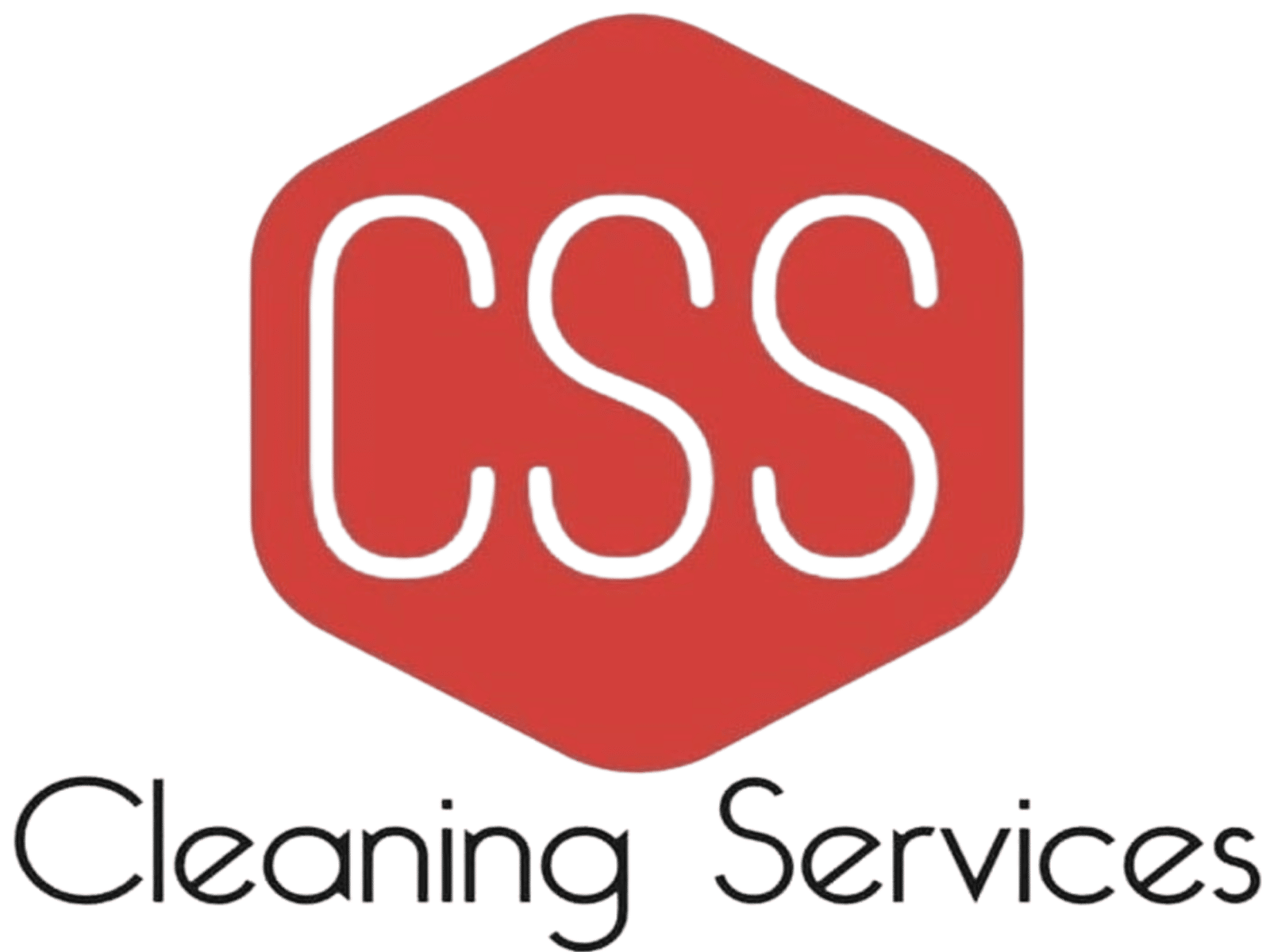
- by Dean
Rotational cleaning isn’t new: it’s already in use in clean-room environments in industries such as pharmaceuticals and electronics. But with the cleaning industry using disinfectant more than ever before to prevent the spread of coronavirus, there is a risk that severe acute respiratory syndrome coronavirus 2 (SARS- CoV-2) could become resistant to cleaning solutions, just like some healthcare infections have become resistant to antibiotics. Yvonne Taylor, Global Head of Cleaning at OCS, reports.
So should you adopt rotational cleaning? In this paper, we explain how resistance develops, how different cleaning agents target different micro-organisms and how you can adapt your cleaning regime to keep your premises safe for employees, customers and service users.
What is it?
Simply put, rotational cleaning is the use of disinfectants in rotation to control the number of micro-organisms present. Using more than one disinfectant reduces the risk of micro-organisms building up resistance.
Why is it important?
We have seen how genetic resistance has developed in organisms such as MRSA. A bacterium that was once controlled by methicillin can no longer be controlled by that antibiotic.
For resistance to develop, a few micro-organisms have to survive a dose of the agent employed to kill them. This gives them a chance to multiply. The advantage they have over other strains that allowed them to survive is passed on and a strain that is able to grow and thrive becomes dominant.
In a clean room, where rotational cleaning is part of the ISO 14644-1 standard, few micro-organisms survive. But in other environments, micro-organisms have the potential to multiply.
If your cleaning regime uses the same agent each time, you could end up with a strain that is resistant to it. Using different disinfectants will increase the kill spectrum.
Naturally occurring resistance happens because disinfectants work in different ways: not all disinfectants are effective at killing all micro-organisms. Some may be very effective against bacteria but not fungi; some may be effective against viruses but not endospores.
• Alcohol-based disinfectants tend to be effective against most micro-organisms, but not endospores.
• Quaternary Ammonium Compounds (QACs or Quats) work by causing disorganisation of the cell membrane, which makes the cells inside leak out and degrade. They are effective against bacteria, enveloped viruses (SARS-CoV-2) and fungi.
• Chlorine is a highly active oxidising agent. Disinfectants containing chlorine kill most things, including endospores at higher concentrates.
• Hydroperoxide is highly reactive and tends to kill everything, including endospores, but this kind of disinfectant is very harsh on the surface it cleans.
• Biguanide kills by affecting the cell wall and cell membrane, but it may not be effective against micro-organisms with a strong cell wall such as SARS-CoV-2. This kind of micro-organism will be naturally resistant to the effects of a biguanide.
Endospores are extremely difficult to kill. Chlorine and hydrogen peroxide are two disinfectants that do have an effect on endospores and they’re often referred to as sporicidal.
Using different disinfectants will increase the kill spectrum. This is the total portion of the microbial population that your cleaning regime can kill. It can be helpful to think of the kill spectrum in a similar way to the light spectrum. If you only ever consider visible light, you’re missing out a huge portion of the light spectrum, what about X-rays and UV rays? In the same way, if your cleaning regime only ever uses disinfectants that kill bacteria, it isn’t doing anything to combat endospores and other types of micro-organisms. And if cleaning regimes only use disinfectants that kill bacteria but not viruses, they create the conditions for viruses to thrive. Cleaning regimes should include disinfectants that, when used in rotation, cover as much of the spectrum as possible, increasing the kill spectrum.
What to use?
Which disinfectants should cleaning regimes use? Using a sporicidal is important, but agents that have sporicidal activity tend to be harsh and unacceptable for everyday use. For this reason, it is recommended that a sporicidal is used in rotation with another disinfectant more suitable for regular use. It is also advisable to use an alcohol, as they have good efficacy against most microbes and can also remove any residues that may build up from using other disinfectants.
Conclusion
While there is not yet evidence that SARS-CoV-2 is becoming resistant to disinfectant, at OCS, we believe businesses should take all precautions to keep their employees, customers and service users safe.
There are many factors that will affect the type and frequency of disinfectant chosen, including the process, residues, what format it’s available in, how easy it is to use and the environmental impact, among others.
The use of different types of disinfectant with different active chemicals is recommended because they have different modes of action. This means they are effective against different types of microbe.
As a guide, our service experts recommend rotating three agents: an alcohol, another general disinfectant and a sporicidal. Using more than one maximises the kill spectrum.
How many shared office appliances were found to have high levels of contamination?
75% of taps located in break rooms
48% of microwave door handles
27% of keyboards
A trusted expert in the cleaning industry
At OCS, we’ve been cleaning for 120 years, working with customers in sectors including Aviation, Destinations and Venues, Healthcare, Government, Manufacturing and Professional Services. We believe cleaning, like maintenance, should be preventative, not reactive. Our proactive approach to deep cleaning reduces the risk of onward transmission and infection by cleaning shared workspaces and touchpoints such as taps, handles and light switches. After a thorough clean, we will then work with you to design a schedule of deep cleaning to maintain standards of hygiene.
Our specialist biohazard teams are trained to deal with significant health risks, including confirmed cases of Covid-19. Our methods include fogging or electrostatic cleaning: the dispersal of micro-droplets of disinfectant and biocides into the air, which reaches areas not touched by conventional cleaning methods. We also offer environmental cleaning, kitchen deep cleaning, and hard-floor and carpet cleaning.~
We provide sustainable solutions that reduce water and chemical use and have a low carbon footprint, using microbial and bio (green) products as much as possible and never phosphates or aerosols. We invest in the latest, most efficient cleaning technology such as footfall monitors to ensure our washrooms are maintained to the highest standards and hands-free robotic cleaners. Our processes and procedures are robust, which means our cleaning operatives are trusted by customers including the NHS. We keep hospitals hygienically safe, enabling healthcare staff to concentrate on looking after patients.
All our cleaning operatives are trained through our award-winning IMPACT cleaning programme, which includes an infection prevention module. We value the important work they do and recognise them through our OCS Stars award scheme and our participation in the annual Thank Your Cleaner Day initiative.3 We also look after colleagues’ physical and mental health through initiatives such as our employee assistance programme and mental health awareness training.
From our skilled colleagues on the frontline to our industry experts, we work with our customers to deliver the most efficient cleaning solution for their needs – one that keeps their premises hygienically clean and their people safe. By working in partnership with our customers, we can better understand how a space is used and identify the high- contact areas. This means we can propose a more efficient cleaning regime that delivers high standards of cleanliness and hygiene.
About the contributor
Yvonne Taylor started out in facilities management as a cleaner 26 years ago and joined OCS in 2015. As Global Head of Cleaning, she is responsible for ensuring we provide our customers with safe, efficient and sustainable solutions delivered by skilled cleaning operatives.
As a service expert, Yvonne sits on public bodies including The British Institute of Cleaning Science and the Cleaning and Support Services Association (CSSA). In her role as Board Director of the CSSA, she has been working to raise the profile of the cleaning industry, and she continues to call for cleaning to be recognised as a profession.
www.ocs.com





